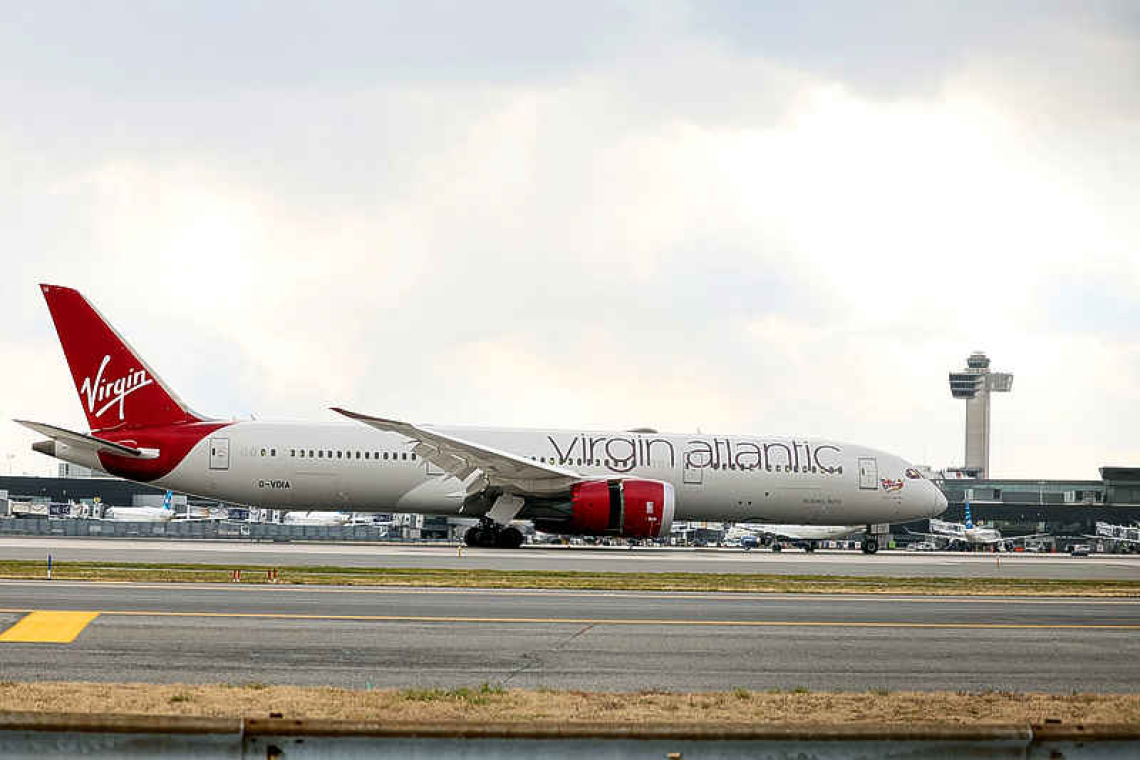LONDON--A Virgin Atlantic passenger jet powered by 100% sustainable aviation fuel (SAF) successfully completed a London-to-New York jaunt on Tuesday in an effort to showcase the potential of low-carbon options that currently make up a tiny fraction of the industry's fuel mix.
The flight is not the first time the industry has staged demonstrations to highlight its aspiration to reduce emissions - and appeal for government support. Indeed, Tuesday's flight carried only Virgin's billionaire founder, Richard Branson, and a few others, and it is set to return to London using conventional jet fuel. Airlines are banking on fuel made from waste to reduce their emissions by up to 70%, but the high cost and tight supply of materials needed to make SAF make large-scale production difficult. SAF accounts for less than 0.1% of total global jet fuel in use today and costs about three to five times as much as regular jet fuel. The flight, operated by a Virgin Boeing 787 powered by Rolls-Royce Trent 1000 engines, is the first time a commercial airliner has flown long haul on 100% SAF. It had no paying passengers or cargo. "It's going to take a while before we can get enough fuel where everybody's going to be able to fly. But you've got to start somewhere," said Branson in London before the plane took off. Aviation is not an easy industry to decarbonize when compared with road travel, and it accounts for an estimated 2-3% of global carbon emissions. Engines in commercial use are not yet certified to fly on more than 50% SAF and the vast majority of flights blend in a much lower amount of SAF with traditional jet fuel. SAF is already used in jet engines as part of a blend with traditional kerosene, but after successful ground tests, Virgin and its partners Rolls-Royce, Boeing, BP and others won permission to fly using only SAF from the U.S. Federal Aviation Administration, Canadian and UK regulators. The flight took off at 1149 GMT from London's Heathrow Airport with Branson, Virgin Atlantic Chief Executive Shai Weiss and Britain's transport minister, Mark Harper, on board. It landed at New York's John F. Kennedy International Airport at 1405 EST, 35 minutes early, where it was met by U.S. Deputy Transportation Secretary Polly Trottenberg, among others. The fuel used to power Tuesday's flight is mostly made from used cooking oil and waste animal fat mixed with a small amount of synthetic aromatic kerosene made from waste corn, Virgin Atlantic said. The industry hopes that the Virgin flight will highlight to governments the need for them to provide financial support to make SAF more readily available. Environmental advocacy group Stay Grounded called the flight a greenwashing distraction. "(Fuel substitutes) are nowhere close to being scalable in the necessary time frame to avoid climate collapse. What is urgently needed is to reduce the burning of fossil jet fuels, which means reducing flights wherever possible," said Magdalena Heuwieser, who represents the network.







